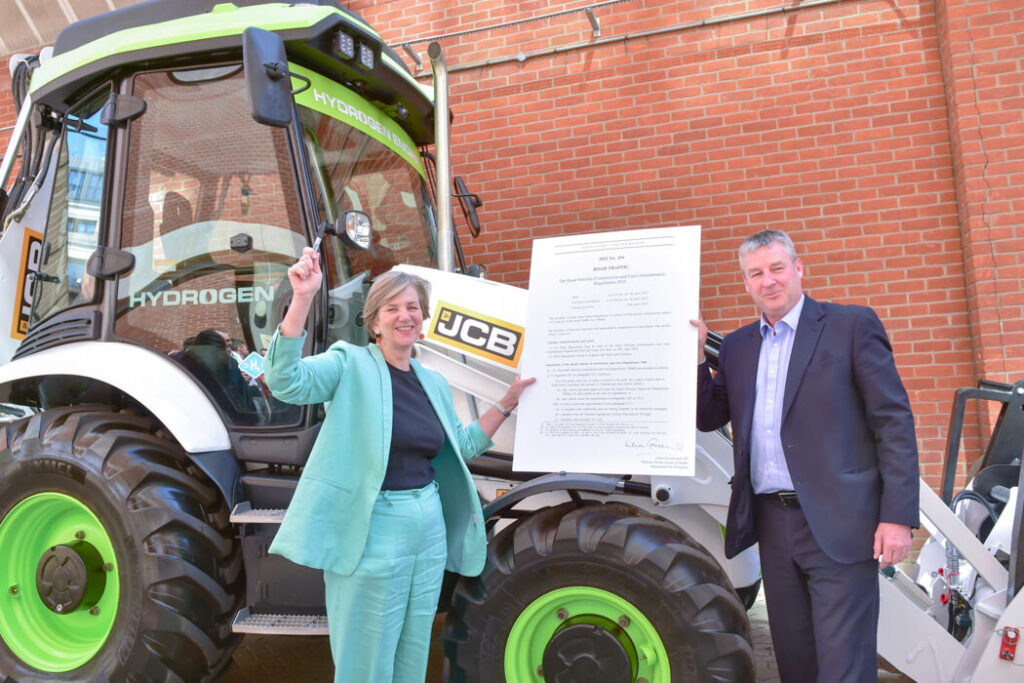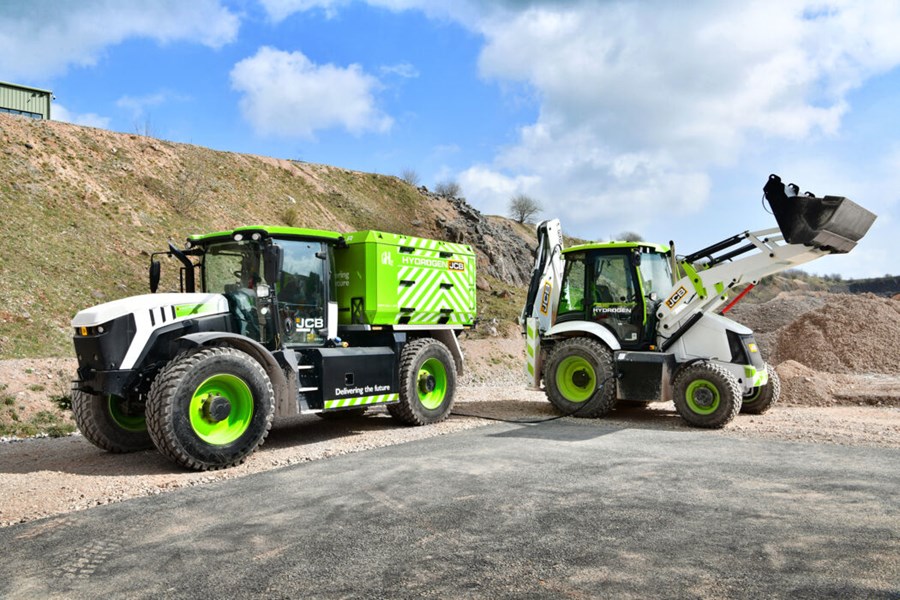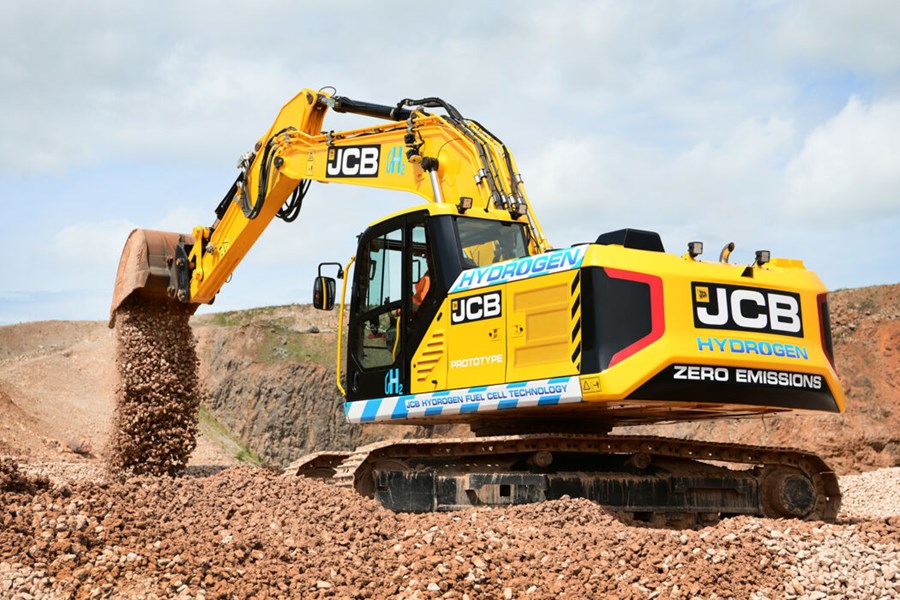JCB Hydrogen Excavators Approved for UK Roads: A Historic Leap in Green Construction
Road-legal approval for JCB Hydrogen excavators on UK roads represents a revolutionary step toward decarbonizing the construction sector with zero-emission machinery.
A Game-Changing Approval for JCB Hydrogen Excavators
In April 2025, UK legislation was amended to clear the way for JCB Hydrogen excavators—hydrogen-powered diggers and backhoe loaders—to traverse public highways legally. This landmark change, initiated under the Road Vehicles (Construction and Use) Regulations 1986, opened the door for hydrogen machinery to move seamlessly between construction sites, farms, and industrial zones.
JCB CEO Anthony Bamford called the JCB hydrogen diggers road-legal UK approval milestone a “historic moment” and emphasized that the JCB Hydrogen excavators perform on par with their diesel counterparts while producing zero CO₂ at the point of use.
Why This Matters: The Role of JCB Hydrogen Excavators in Decarbonizing Construction
With the construction sector responsible for a significant share of greenhouse gas emissions, introducing zero-carbon machinery is vital. JCB Hydrogen excavators use a purpose-engineered combustion engine fueled by hydrogen, offering a sustainable alternative in hard-to-electrify heavy equipment, hence accomplishing the JCB road to zero campaign.
These machines match the strength and endurance of traditional equipment but eliminate CO₂ output, helping industries such as infrastructure, agriculture, and waste management move toward greener operations.
JCB’s £100M Vision and Technological Breakthrough
The road to this achievement began with a bold investment—JCB committed over £100 million to develop hydrogen combustion technology at its engine manufacturing plant in Derbyshire.
By early 2025, type approval was granted across the UK and EU, allowing JCB Hydrogen excavators to enter commercial use across Europe—including Great Britain, Germany, France, and the Netherlands.
From Government Halls to London Streets: Making History
To celebrate, one of JCB’s pioneering excavators took to London’s streets in a symbolic demonstration. The digger paused at the Department for Transport, marking a public milestone in the adoption of green construction machinery.
Future of Roads Minister Lilian Greenwood underscored the UK’s commitment to its zero-emission agenda, calling the law change a direct support to British businesses and a leap toward net-zero ambitions.
How JCB Hydrogen Excavators Work and Refuel
JCB’s hydrogen combustion engine retains the familiar internal combustion design, but with hydrogen gas as fuel—combustion produces only water vapor. This makes it both clean and mechanically familiar.
To support this innovation onsite, JCB introduced HyKit—a mobile hydrogen refueling unit that brings fuel directly to the machine, similar in operation to diesel bowsers in use today.
Widespread Market Approval: Europe and Beyond
European regulatory bodies have embraced JCB’s innovation: 11 licensing authorities, including RDW in the Netherlands and counterparts across Western Europe, approved the hydrogen engine for non-road mobile machinery.
This regulatory backing paves the way for JCB Hydrogen excavators to be commercially available and supported across multiple international markets.
Real-World Testing and Traction
Before regulatory approval, JCB Hydrogen excavators and other hydrogen-powered prototypes went through rigorous real-world trials designed to push the technology beyond controlled lab conditions. The company deployed hydrogen-powered Loadall telescopic handlers, backhoe loaders, and mobile generators to active construction sites, agricultural fields, and even municipal maintenance projects across the Midlands.
These trials were not simply technical demonstrations; they were operational stress tests. Machines faced varied workloads—from heavy digging and lifting to powering auxiliary equipment—all under the unpredictable conditions of the British climate. Feedback from seasoned operators was particularly telling. Many reported that the JCB Hydrogen excavators delivered the same torque, responsiveness, and reliability as diesel models, with the added benefit of producing zero CO₂ emissions during operation.
Fleet managers noted reduced downtime thanks to straightforward maintenance procedures, which closely mirror those of conventional combustion engines. This familiarity shortened the learning curve for operators and maintenance crews, easing the transition to hydrogen-powered machinery. By the conclusion of these trials, confidence in both the performance and viability of JCB Hydrogen excavators was strong enough to push forward with regulatory lobbying for road approval.
The Road Ahead: Scaling Hydrogen Excavation Technology
As global demand for sustainable infrastructure grows, JCB Hydrogen excavators represent a crucial next step.
- For operators: these machines reduce carbon emissions and fuel costs without compromising performance.
- For policymakers: they support net-zero roadmaps and green construction mandates.
- For communities: they offer quieter, cleaner operations that benefit public health and local environments.
Expanding hydrogen infrastructure, specifically production, storage, and distribution, will be essential for scaling this innovation across various sectors and geographies.
Final Word
JCB Hydrogen excavators receiving approval to operate on the road between work sites is more than a regulatory milestone—it’s a powerful signal that technology and policy can align to deliver clean, practical solutions in heavy industry.
As the first globally recognized hydrogen-powered digger to gain this level of legal acceptance, JCB sets a benchmark for the future of construction: sustainable, robust, and ready for real-world challenges.
Stay Updated with Construction Frontier
Want the latest in construction innovation, policy shifts, and green tech? Visit ConstructionFrontier.com for expert analysis, in-depth articles, and forward-thinking updates.







